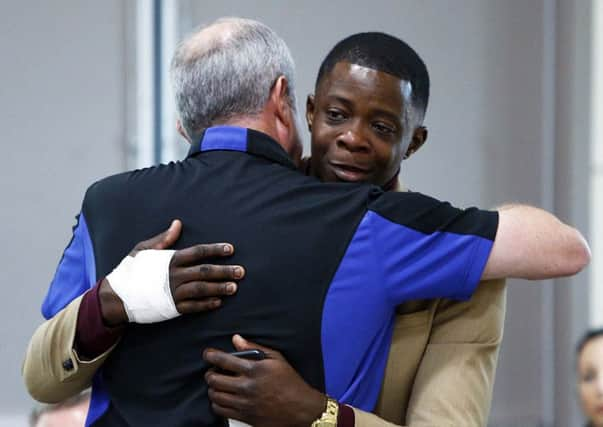Martyn McLaughlin: The mass shooting '˜hero' who rejected the accolade


In a flashpoint which, if not bucked, then skewed the conventional narrative which frames the endless wave of deadly shootings in America, Mr Shaw was able to prevent a mass murder from escalating into a massacre.
Confronted by gunman Travis Reinking, he ran unarmed towards danger and wrestled an AR-15 assault rifle from his grip, forcing him to flee. By that point, four people had already been killed, and two more injured, but even amidst such darkness, Mr Shaw let in a beam of light.
Advertisement
Hide AdAdvertisement
Hide AdIn the hours that followed, as the frantic rundown of what had taken place in Nashville’s Waffle House eatery emerged, the vital intervention he played became clear. Without delay, he was anointed with the status of a hero. An all-American tragedy had been assigned a redemptive coda.
Yet the next day, cutting a quiet and remote presence before an assembled press conference, Mr Shaw politely rejected this straightforward conclusion, and with it, the role the media had assigned to him.
“I want people to know I did that completely out of a selfish act,” he said, having relayed a blow-by-blow account of proceedings in the restaurant. “I was completely doing it just to save myself. I did save other people, but I don’t want people to think that I was the Terminator or Superman or anybody like that.”
Becoming emotional as he addressed reporters, he added: “I’m not a hero. I’m just a regular person, and I think anybody could have did what I did if they’re just pushed into that kind of cage.
“You have to either react or you’re going to fold, and I chose to react because I didn’t see any other way of living, and that’s all I wanted to do. I just wanted to live.”
Though some have held up Mr Shaw’s words as evidence of his humility, further entrenching his valour, rewatching the press conference is instructive. The manner in which he deliberated over his words suggests something else is at play. Namely, that a young man as intelligent as he is courageous may be wary of how the burdens of heroism can hang heavy.
The Oxford English Dictionary defines a hero is “a person who is admired for their courage, outstanding achievements, or noble qualities”, and it would difficult to mount an argument that Mr Shaw is lacking in any of those traits.
And yet, as he was so at pains to point out during the press conference, his virtuous act was not the result of his character, but sheer gut instinct. Faced with a near certain death, he chose to cling on to life in the only way he knew how. He is a survivor, first and foremost.
Advertisement
Hide AdAdvertisement
Hide AdUnfortunately, the act of preventing further blood from being spilled does not grant him the licence to choose how he is portrayed. That is partly because so many people admire what he did, and are genuinely grateful – not least the handful of fellow customers in the Waffle House, who will forever be in his debt.
But is also the legacy of the media’s ready-made rhetoric and reductive composition of difficult stories which mean he could not be portrayed as anything other than a hero.
Implicit in the designation is a simple idea: whatever else divides us, heroism is a reassuring and unifying force. And, in a country where the Trump administration has wrought such division and ill-feeling, it is easy to underestimate such a power.
After all, the deeds of heroes have been enmeshed in our storytelling traditions for millennia, ever since the ancient Greeks recognised there were some people who should be exalted as greater than mere mortals.
As the choral poet, Pindar, observed, we are creatures of a day and the shadow of a dream is man, no more. But when God-given glory comes, there is shining of light on men. The Greeks at least reserved such accolades for warriors capable of extraordinary exploits, and up until the middle of the last century, the status quo was largely preserved. Heroism was praise afforded to masses, such as the ranks of troops returning victorious from foreign shores.
It has, however, become an overused descriptor, conflated with idol worship and mostly synonymous with individuals.
It is absurd how athletes are transformed into heroes simply for winning competitions, and equally, challenging the idea that a police officer or firefighter is a hero for answering the call of duty should not be angrily dismissed as ingratitude for their service. Yet the time-honoured heroism narrative steadfastly rejects such nuance, especially when it is being offered up by a media not so much desperate to chime with public sentiment as it is terrified to misread it.
Heroes will always be necessary – they unite and inspire, lending meaning to death and needless suffering, and revealing our capacity for the remarkable.
We should be grateful to Mr Shaw for not keeping his own impulses in check that bloody morning in Nashville, but it would do no harm were the rest of us to reflect on our reverence.
